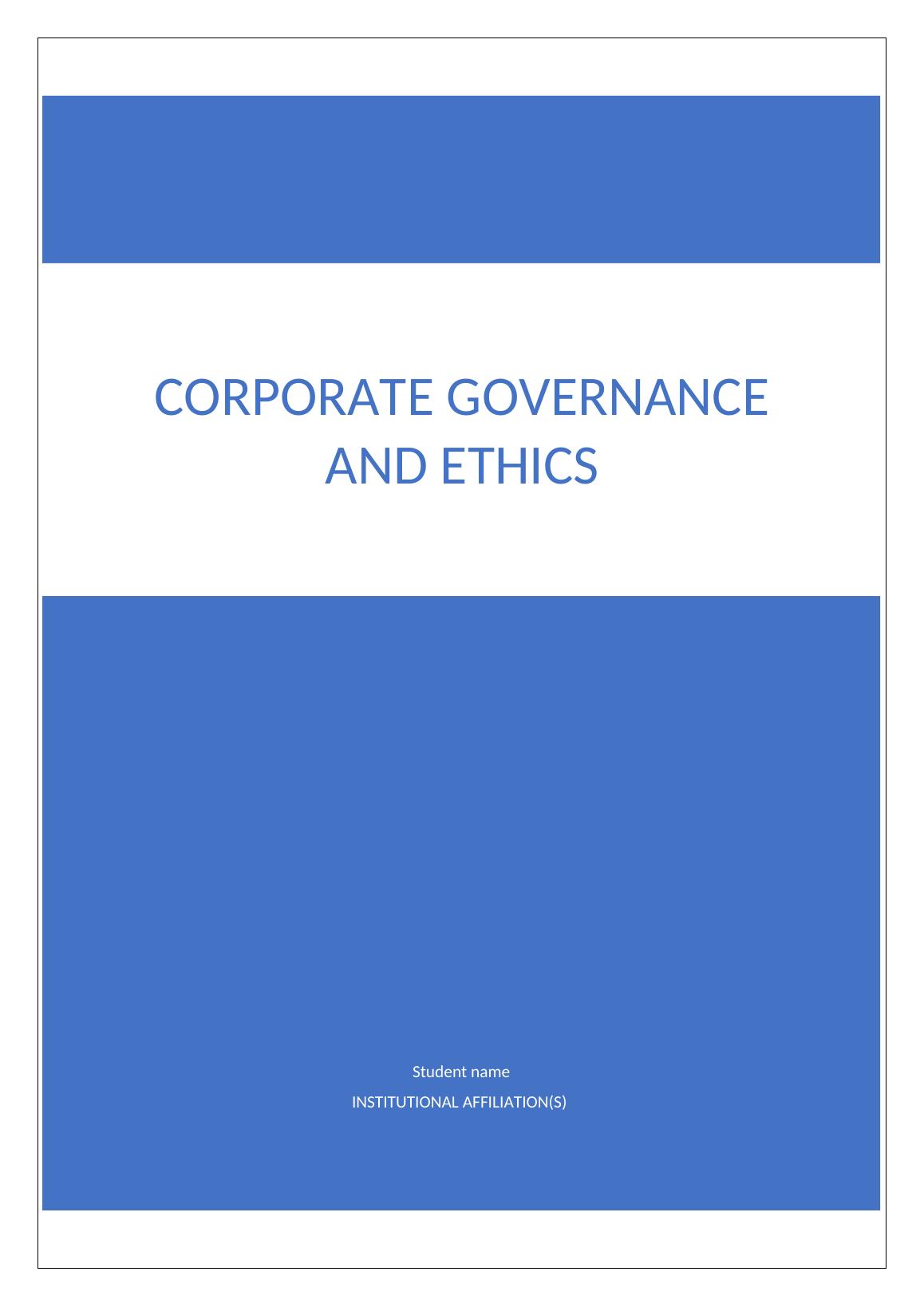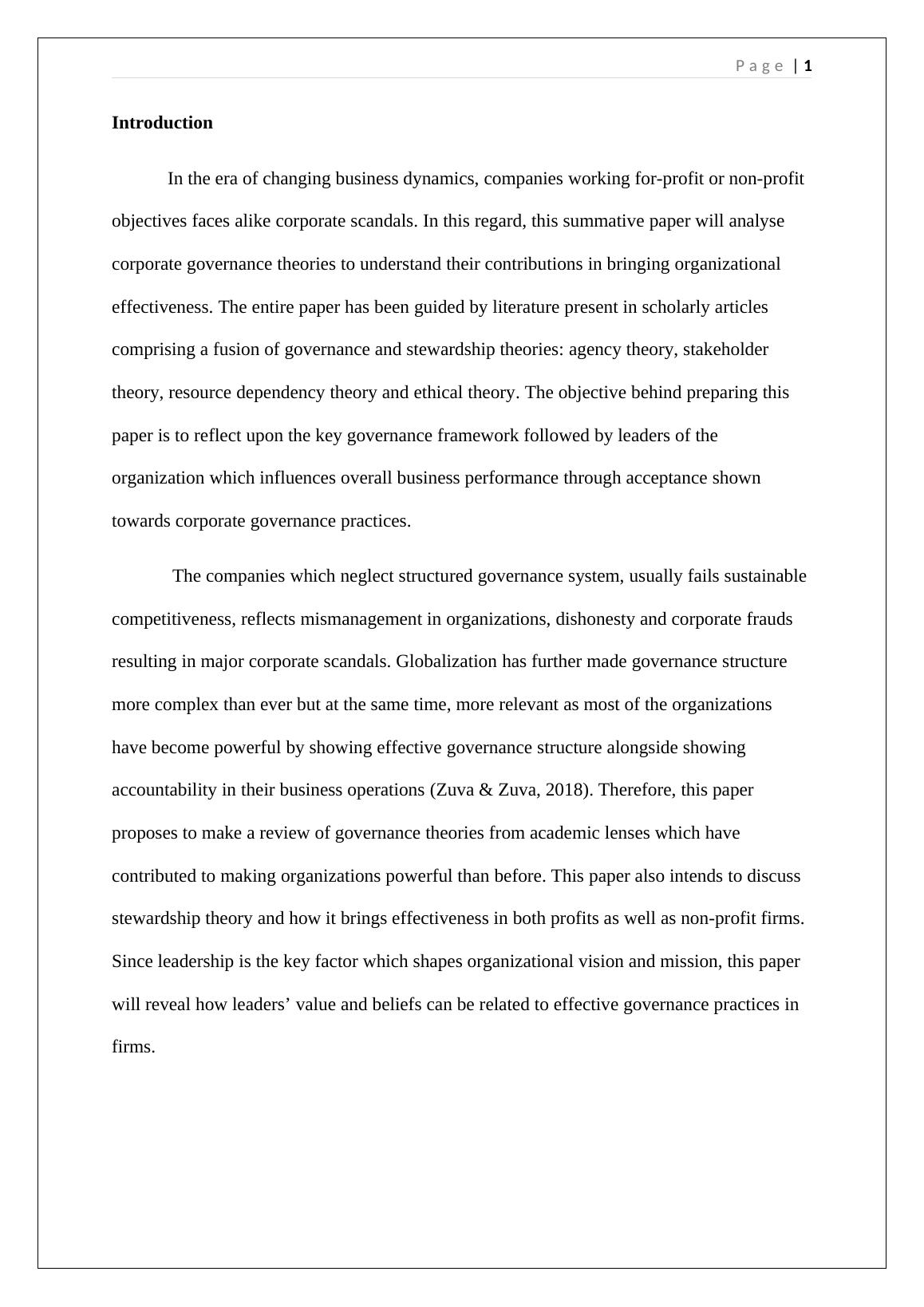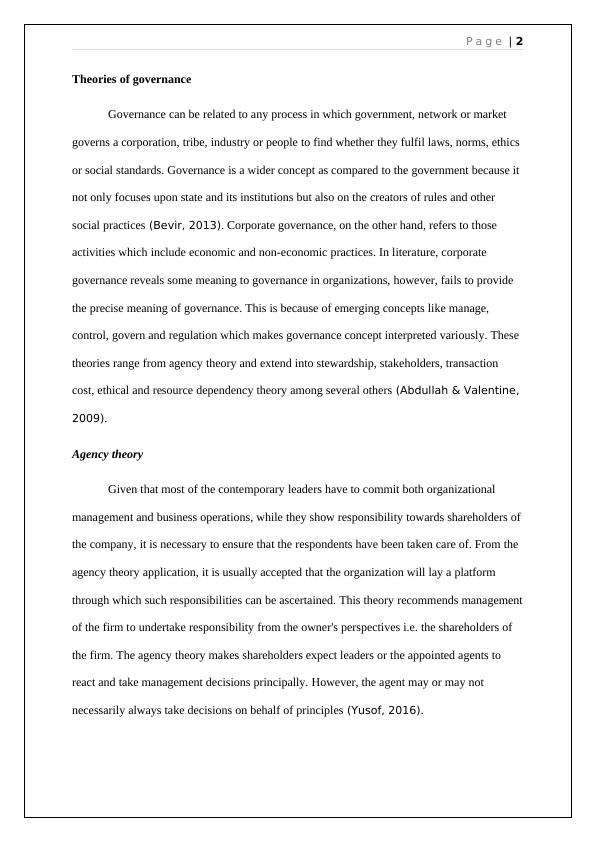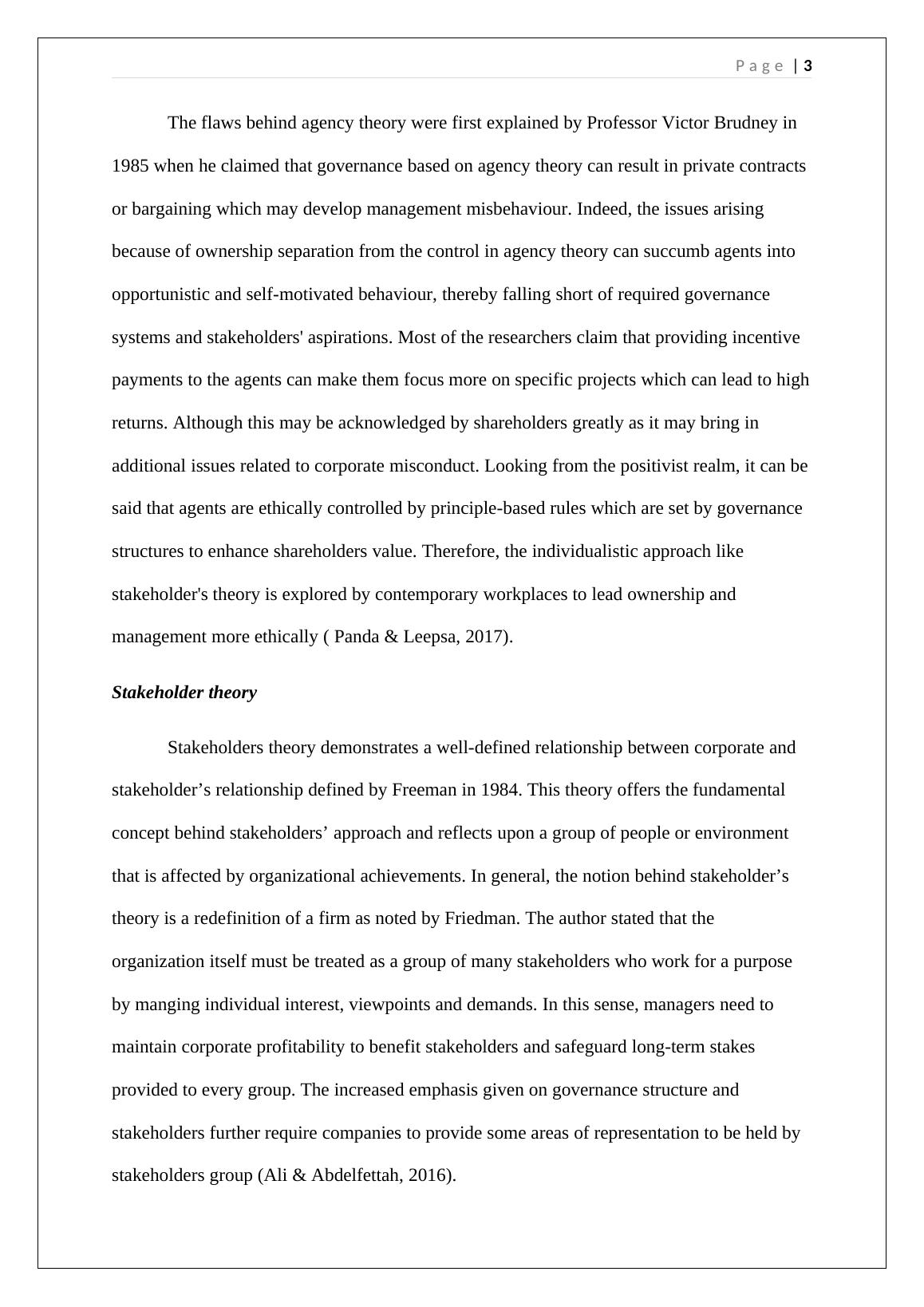Corporate Governance Theories and Their Contributions to Organizational Effectiveness
Write a summative paper on seminal theories of governance and stewardship that inform effective organizational leadership in non-profit or for-profit organizations. The paper should include an introduction, a discussion of key theories of governance, contributions of stewardship theory, a discussion of the relationship between a leader's values and beliefs to effective governance, and a conclusion.
Added on 2022-10-15
About This Document
Corporate Governance Theories and Their Contributions to Organizational Effectiveness
Write a summative paper on seminal theories of governance and stewardship that inform effective organizational leadership in non-profit or for-profit organizations. The paper should include an introduction, a discussion of key theories of governance, contributions of stewardship theory, a discussion of the relationship between a leader's values and beliefs to effective governance, and a conclusion.
Added on 2022-10-15
End of preview
Want to access all the pages? Upload your documents or become a member.




